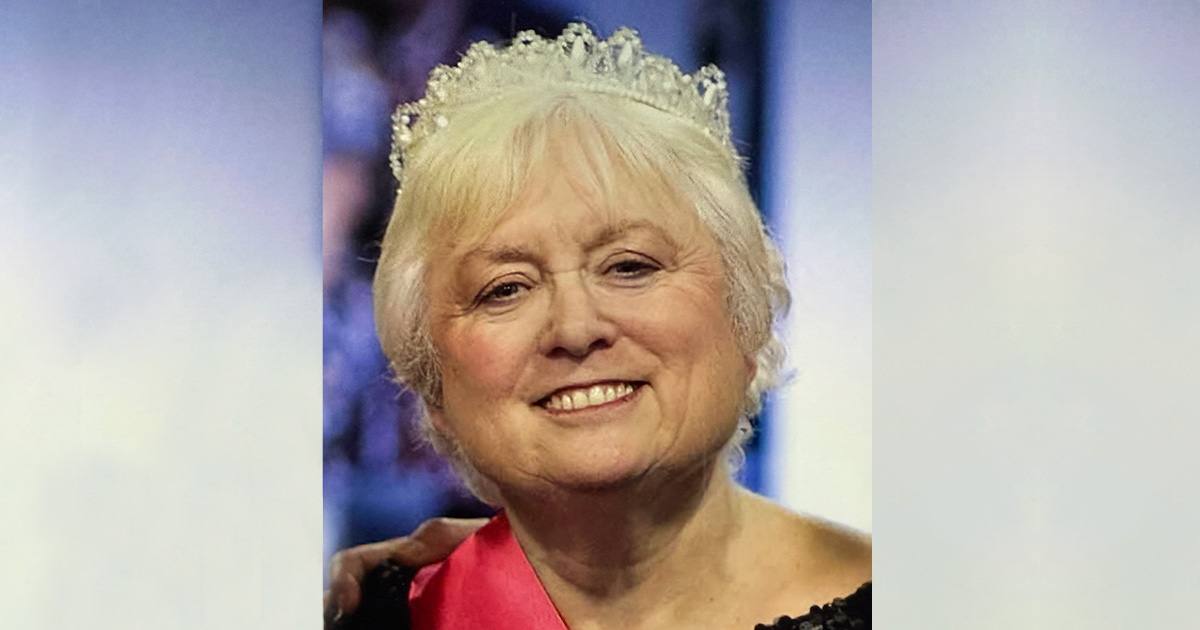British Forces Germany (BFG) is the composite name for the British Army, remaining elements of the Royal Air Force, family members and supporting civilian personnel stationed in Germany. It is concentrated in an area similar in size to Scotland, and is divided into four main garrisons: Hohne-Bergen, Paderborn, Gütersloh and Rhine. Hohne garrison is situated between Hamburg and Hannover in northern central Germany, Paderborn and Gütersloh are in western Germany and Rhine is slightly further south (Figure 1). Each garrison has a main medical reception station and satellite medical centres.
The BFG population is made up of military and civilian personnel, adult dependents and children. Children currently form about a quarter of the total population, but around half of the civilian population. The overall BFG population is estimated to be around 50 000.
With the posting of soldiers and their families, there is a high turnover of the population, with approximately one-third moving each year.
A move or posting may be made within BFG, but can also be back to the UK or to a British Forces base elsewhere in the world. Close monitoring of personnel and their families based in BFG therefore presents a challenge.
There are a significant number of foreign and commonwealth soldiers and their families whose first language is not English, as well as a large number of other European wives/husbands and partners with serving military personnel. A number of families choose to remain in Germany and opt to buy property, to prepare for when their soldier leaves the services at the end of his or her working career.
Healthcare provision in Germany
For German Nationals, healthcare is generally funded via tax payments through two main routes: a government health insurance scheme and a number of top-up private healthcare insurance schemes.
BFG families in Germany have access to free health care via the British Forces Germany Health Service (BFGHS). Primary and community care services are provided by a limited liability partnership between the Soldiers, Sailors, Airmen and Families Association (SSAFA) Forces Help, and Guy’s and St Thomas’ Trust (GSTT) who employ nurses, pharmacy staff and community healthcare team members, including midwives, health visitors and social workers. Doctors are recruited through a variety of routes, and include military doctors, local Ministry of Defence civil service-employed GPs and locums. These staff are employed in medical centres sited within the barracks.
GSTT is responsible for providing secondary healthcare services on behalf of BFGHS. The majority of hospital-based care is provided via subcontracts with Designated German Provider hospitals in each region.
BFGHS aims to provide an effective and efficient healthcare service broadly equivalent to NHS standards where it is appropriate and feasible to do so. Families with children who have highly complex health needs tend to opt out of BFG postings when possible, unless they can be assured that their health needs can be met in both primary and secondary care.
Diabetes management in BFG
Our total BFG population is mostly made up of young healthy adults and children; consequently, there are fewer people with type 2 diabetes than would be seen in a standard UK primary care trust. Approximately 250–280 people have diabetes, and this includes type 1, type 2 and gestational diabetes. As already mentioned, our population is quite fluid so numbers go up and down, depending on deployments and regimental moves.
In Hohne garrison, we currently have five children with type 1 diabetes. These children are under the care of the diabetes team at the Auf der Bult Children’s Hospital, Hannover. The Auf der Bult diabetes team has a large diabetes caseload, and approximately three-quarters of their population use an insulin pump. This is because the insurance-focused system of German secondary care supports the continuing move towards insulin pump use for improved quality of life and long-term outcomes, and so funds the devices and consumables. German families are expected to do as advised by their healthcare team, and have a high regard for adherence.
When initially diagnosed with diabetes in BFG, children and their parents have to come into hospital for at least 1 week for diabetes training and to receive their education package. Germany does not have community-based DSNs for adults or children; all education is delivered within the hospital or specialist clinic setting by diabetes educators. Hannover Children’s Hospital has a classroom for these education sessions, and families sit together to learn from the diabetes team.
An interpreter is usually available to support Forces families during the training period. The interpreter directly translates the topic/theme of the discussion by the diabetes educator. Occasionally words do not translate directly across from German to English, e.g. basal insulin in Hannover is often translated to “liver insulin” as it is the insulin that deals with the background glucose released from the liver.
The education packages provided are similar in structure to those in the UK, as the basics of diabetes education are the same, namely:
- What is diabetes?
- How is it treated?
- How, why and how often should blood glucose levels be monitored?
- How to manage a healthy diet.
- How to manage exercise and activity.
- How to recognise and treat hypoglycaemia.
- How to recognise and treat hyperglycaemia.
- Sick-day rules and when to seek help/advice.
However, there are also some significant differences:
- In the UK, blood glucose is measured in mmol/L, whereas in Germany it is measured in mg/dL (to convert from mg/dL to mmol/L just divide mg/dL by 18).
- The numbers involved are very different, so it can take quite a long time for UK healthcare professionals taught in mmol/L to become used to making the conversion mentally between UK and German values.
- In BFG, children are given blood glucose testing kits that give results in mg/dL, whereas the literature given to families and written by organisations such as Diabetes UK gives UK values in mmol/L, so a thorough explanation of the reason for the differences in values and how to convert from one system to the other is needed. It is important, also, to explain this to families moving back to the UK, or newly posted to Germany. In BFG, it is often the responsibility of the community children’s nurse (CCN) to provide this explanation.
Another problem that BFG school health and the CCNs also regularly encounter is the need to re-write school healthcare plans or diabetes literature to accommodate German and/or UK blood glucose values, depending on whether the child was diagnosed in the UK or Germany.
An interesting difference between the UK and German systems relates to clinic follow-up appointments. Children in Germany are required to return to clinic every 6 weeks, and not every 8–12 weeks as in the UK. This is routine practice and not considered intensive clinical review for families having problems managing diabetes. If a child or family is struggling, admission to hospital for review of basal rates and daily insulin requirements is routinely offered; the hospital stay may last 4–5 days.
BFG children attend schools that follow the UK national curriculum. Recent guidance from the Royal College of Nursing (RCN) Paediatric and Adolescent Diabetes Special Interest Group (RCN, 2009) has been very useful in ensuring that children with diabetes have the same access to school services as those who do not have diabetes.
The hospital in Hannover tries hard to ensure that it gives literature in English to Forces families, and most of the teaching is “hands on,” so that families “learn while doing”. Families are encouraged to join Diabetes UK so that they have access to other diabetes information and updates. Each of the four BFG garrisons has its own CCN, who can request packs from Diabetes UK for newly diagnosed children with diabetes and undertake much of the liaison between the families and the hospital. CCNs can also offer home and school visits for ongoing support, education and anticipatory guidance.
Another challenge is carbohydrate counting. Many families shop for groceries at the NAAFI, a chain of stores and restaurants that provide a taste of home to Forces families. The NAAFI stores UK products that comply with UK labelling legislation and have carbohydrate values printed on the packaging. This is not a requirement in German supermarkets, so foods have to be weighed. Occasionally there is a carbohydrate value for 100 g of the product, but this is not the norm so families need to be vigilant when choosing local products.
Dining out is popular, and portion sizes for many meals are very generous, so it is easy for adults to gain extra pounds while stationed abroad. Calculating carbohydrate values, though, can be more of a “guesstimate” as the hospital-based German dietitian tends to discuss only German food products known to her; regular blood glucose monitoring is therefore essential to enable children and adults with diabetes and their families to learn how much insulin is required for new items of food.
Outdoor activities are normal lifestyle pursuits in BFG and actively encouraged. Many families are involved in activities that they may not have access to at home in the UK. Cycling is very popular and facilitated by the many varied cycle paths and routes. In Hohne garrison there are lots of wooded areas (with deer and wild boar often seen) so outdoor walking is popular, with signposted pathways everywhere. Summers tend be warmer than in the UK and there are a higher number of outdoor swimming pools here, whereas winters are much colder than in the UK. Blood glucose management with regard to exercise and temperature fluctuations is part of the ongoing teaching package commenced at diagnosis.
Access to treatment supplies can sometimes be problematic, for example our supply chain may have difficulty in accessing the exact product required, so local German purchase may be necessary. Also, some insulins have different names for the same product in different countries; however, each diabetes company is happy to share information on these differences, which makes life a bit easier. This is another aspect of management that will require a thorough explanation for those with diabetes.
Although we have access to the British National Formulary for up-to-date information on products, our actual dispensing formulary is limited to the more frequently used products in order to maintain cost-effectiveness. In practical terms this means that access to new blood glucose testing kits or insulin injection devices is significantly reduced, and the meters we are sent are set in mmol/L and not mg/dL, as they come from UK sources. Local purchase is more expensive, but is sometimes the only way a product can be obtained reasonably swiftly.
Another important point is that BFG uses the normal UK postal service via a British Forces Post Office (BFPO No.) box number, which means that the BFG community is able to use ordinary first- and second-class UK stamps. However, many UK companies will not send products or services to a BFPO number. This has been raised as a problem, and following lengthy discussion with Simon O’Neil, Libby Dowling and Mark Cullen at Diabetes UK it has been agreed that a person who lives at a BFPO number does not have to pay for international postage or international Diabetes UK membership when he or she is stationed abroad with any of the British Forces. This recent decision will be greatly appreciated by those with diabetes in BFG.
A recent visit to the Diabetes UK Annual Professional Conference in Liverpool provided me with the means to access new information and products related to diabetes. It is not possible for a CCN in BFG to see company representatives as a DSN or paediatric DSN would do in the UK, so attending this conference gives BFG delegates the opportunity to access English information and literature and up-to-date information to pass on to colleagues in BFG on their return.
With current baggage allowance limitations it is necessary to form strong links with UK-based diabetes companies and encourage them to post literature, product samples and devices to BFG. Without this lifeline of continuing educational and product support, it would not be possible to share or deliver many new interventions within the BFG service.
Conclusion
The aims of diabetes care in BFG remain very similar to those in the UK, with a strong focus on long-term outcomes and quality of life. It has been reported anecdotally that the tendency to comply with routines, as required within a military environment, is helpful and constructive for stabilising blood glucose control within the Forces population.
The CCN team, consisting of four children’s nurses in BFG, plays an important role in transitional care between Germany, the UK and other British Forces bases around the world, providing a seamless service to children with diabetes living abroad. Living and working in BFG has given me a new insight into diabetes care outside the UK, and a greater understanding of the challenges and opportunities encountered with a mobile population. These new insights will inform and enhance my future diabetes care delivery when I return to the UK NHS diabetes environment.





NHS England to allow weight-loss injections for prioritised patient cohorts from late June.
5 Apr 2025